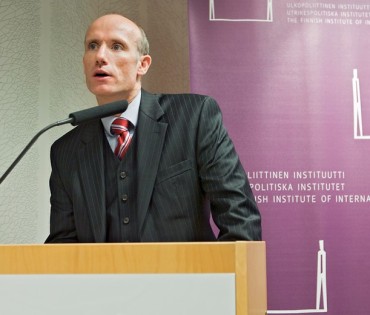Stefan Wolff, Professor of International Security at the University of Birmingham (England)The key ingredients of a successful establishment of inclusive citizenship practises I think lie in the recognition that this applies to a number of different areas in society. First of all I would argue, that it is very important to have a proper constitutional and leader framework, that ensures in a very broad sense equal rights and obligations for citizens that makes sure that there is no discrimination on what ever glance whether it’s ethnic, religious, gender, linguistic discrimination. None of that should be permissible.
The second issue I think is that it’s very important for citizens to have equal rights of political participation and political representation. This is very important in order to make sure that there is a general sense, that citizenship means that individual people actually have an opportunity to participate in the decision making process. But it’s also important in many ways, that legal and constitutional framework is properly enforceable through the court system. That means that no inclusive citizenship really is possible without a strong foundation, based on the rule of law. Another important dimension of inclusive citizenship also is the issue that people have economic opportunities, that there is a proper material bases of people’s livelihoods and wellbeing. This is very important in the sense that without economic opportunity the danger is that people will very quickly become disillusioned with the political system in which they are living. Loyalty to the state and its institutions will decrease and that has the potential to degenerate into a potentially violent conflict.
And the final point that I would like to emphasize is that a lot of that requires a broad political culture, which embraces the need and the utility of democratic institutions. And here what I thing is particularly important, is also the issue, that this is broadly propagated through the education system in the country. And then again we can come to a sort of circle and recognize that obviously in the country which is very diverse in terms of its different ethnic, religious and linguistic communities that education needs to cater towards the need of these different communities as well.
So education then clearly intersects with issues of culture and cultural rights, so that in the end inclusive citizenship really means the opportunity for people, to be politically, socially, economically, culturally integrated into that country, to get a sense of loyalty to the state in which they are living, a state that gives everybody equal opportunities and does not discriminate against anyone on the basis of real or imagined differences between citizens.




Comments theme
Comments themeComments themeComments themeComments themeComments themeComments themeComments themeComments themeComments themeComments themeComments themeComments themeComments themeComments themeComments themeComments themeComments themeComments themeComments themeComments.